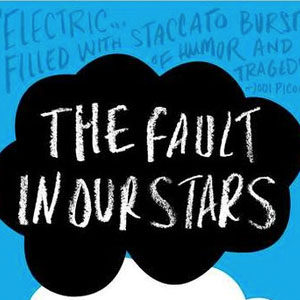The New True (or, The Internet: The Incredible Credibility Machine)
There’s an old saying, “don’t believe everything you read in the newspapers.” Obviously, this advice applies to the Internet. Conduct a search on Google on almost any topic and buried somewhere in the results will be links to a wide variety of unusual or even radical ideas (depending, of course, on your definition of unusual or radical).
Granted, some of these ideas may eventually reach the mainstream, take root and ultimately improve our lives for the better. However, there’s a problem. As the Internet has become the medium of choice for uncounted millions around the globe, it has also acquired the power to grant credibility not only to fringe and potentially dangerous ideas, but even to outright lies.
Why is this a problem? It’s not because there will always be people who will believe anything. It’s also not because some of this information is intentionally deceitful (although this is itself a huge problem). Nor is it even that the numbers of those exposed to this surging tide of fallacy is increasing rapidly. It’s a problem because there is a growing culture that is accepting the malleability of truth.
The Malleability of Truth and Other Love Stories
Herein lies the real danger. The truth used to be pure and beautiful and absolute. But in a world where the sanctity of truth is eroded, anything can become true. Now, obviously you don’t believe everything you read on the internet (good for you). But how many times have you read something you knew to be wrong or untrue and yet, something about it just stuck with you? Perhaps it nagged at your subconscious. Maybe it even softens your opposition to the original idea.
All mass media has the power to grant credibility. Consider Walter Cronkite, the former journalist and television news anchor. Smart guy? Sure. But he was so respected by his audience, so undeniably credible, that George McGovern wanted him as his Vice Presidential running mate in 1972. Certainly this respect was earned by years of hard work, but the medium of television granted him additional credibility. The internet excels at this.
Today, not only is the internet able to grant credibility, but it can amplify that credibility to a level disproportionate to that of all other media. Today, tens of millions can laugh and experience the otherwise obscure video Evolution of Dance.
Today (a few million less) fall in love with Soccer Moms who blog about their qualifications to be Vice President. How does the Internet do this? It does so in three ways.
1. Scarcity Breeds Credibility
Ask yourself how much you really know about the source of any idea. When we watched Cronkite you might have agreed that he appeared authoritative. You place greater credibility upon his words. But when you read this blog, you can’t see or hear me. You might ascribe certain attributes to me, picturing me as tall, charming and handsome (I am :). And if you agree with me or enjoy my posts, that image might increase my credibility with you.
The point is that, like Cronkite, you only get me in small morsels (my posts) and the less you know about me, the more credible I appear. I, like my fellow bloggers, are beautiful and smart and perfect. You don’t see anything tarnishing the silver lining. Think about Elliot Spitzer, John Edwards or Tom Cruise; all beloved golden-boys until we looked a little too closely. They became over exposed and the knowledge of their indiscretions, or ridiculous behavior destroyed their credibility. Credibility depends on limited exposure; i.e. scarcity.
2. Less is More (More or Less)
This is less about how much you know about someone then about how many someones you know. Back in Cronkite’s day, the number of sources of information you were exposed to could probably be counted on two hands, if not one. I read the RSS feeds from close to one hundred sources every day. Okay, I skim a lot of headlines. The point is that I may not be getting to know any individual source any better then the next one. So how do I know that one source is any more credible then the next?
At least I know that my news comes from diverse sources. Millions of people who use Yahoo or Google as their home pages don’t even realize that the news feeds that fill those pages don’t all come from the same place. Few people stop to learn about their sources before moving onto the next. When this happens, people can’t weigh the credibility of those sources. Everything gets mixed together so fringe ideas earn credibility by being consumed along with more credible ones.
3. Virtuous Circles
Credibility is a powerful thing. In a vacuum (a lack of overexposure) credibility can achieve incredible momentum. Under the right circumstances, that momentum can loop back into a virtuous circle. Credibility builds upon credibility. Google has mined this to amazing effect. Their PageRank system assigns credibility to websites that have a large number of other websites linking to it. When you become credible enough, the standard for what’s true is whatever you say it is. You define the truth. This is the “New True.”
Welcome to the “New True” (“You can’t handle the truth”)
The New True doesn’t care if anything is true or not because it changes what it means to be true. No longer will the truth be obscured by shades of grey. No longer are outlandish claims incredible. And while the New True can now be found in any mass media, it was the internet that gave it life because once something is on the internet, once it’s out there, it can never be taken back. It gains a base credibility and becomes Internet Credible. And once on the Internet, an I-Credible idea can germinate or fester (depending on your point of view), essentially hibernating until its audience finds it.
The implications of this are profound. As the New True becomes accepted, it becomes the standard upon which all other truths are measured. Checks and balances become meaningless. The New True is a rubber stamp which anyone with an audience can place upon any ideas, even potentially dangerous ones. And we have no choice but to learn how to handle it.
Now you may be asking yourself if this could really happen. Could any of this really be true? Of course it is. Want to know why?
Because you read it here, on the internet.











